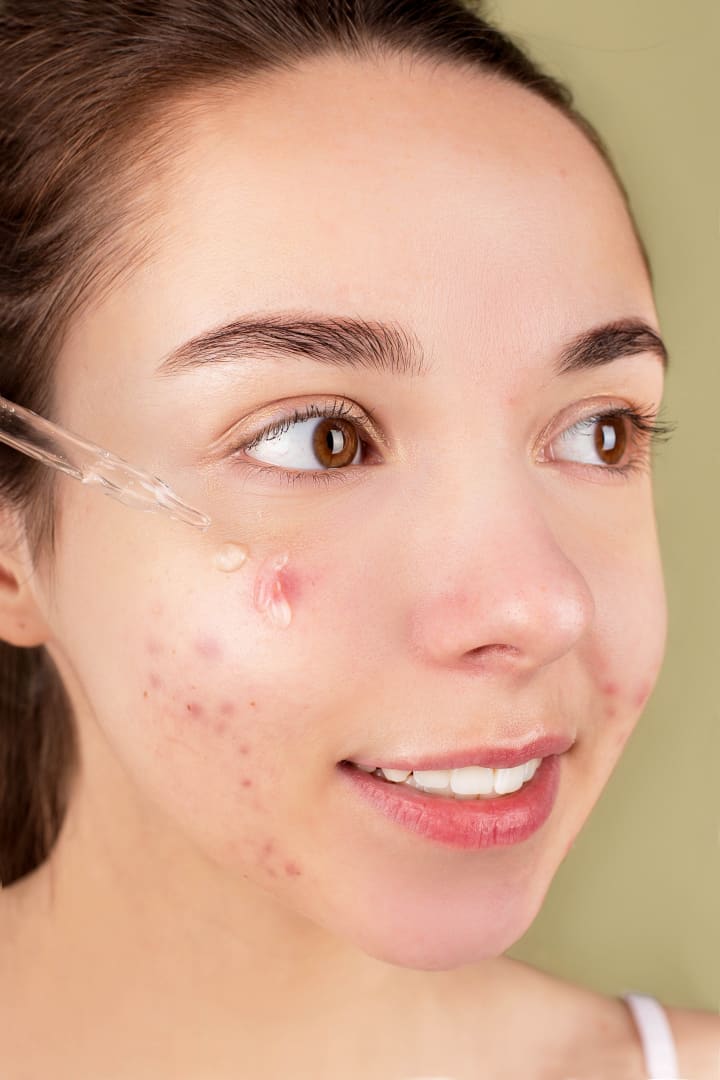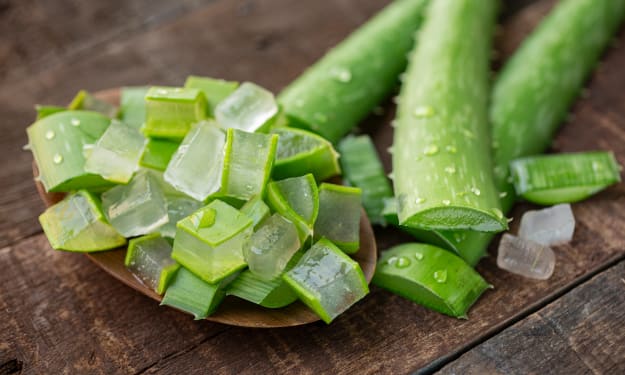
The most effective methods for removing acne scars
Acne breakouts are aggravating, and they can leave scars on the face and other body parts. Acne scars can be an unwelcome reminder of a painful and troublesome condition for some people. Acne scars, on the other hand, don't have to be permanent because there are various home remedies and medical therapies that can help you get rid of them.
Acne is a common and aggravating skin condition that can result in scars and black patches. While acne scars won't go away completely, there are a few things you may do to lessen or reduce their look.
The majority of these techniques take time to work, so if you need a speedy fix, concealer is your best bet.
Here's a closer look at the many forms of acne scars, as well as the most effective treatments and what produces them in the first place.
Acne scars come in various forms.
Depending on the type of scarring caused by acne, treatment choices may differ slightly. Acne scars can be divided into three categories:
Depressed (Atrophic Scars): Scars that are atrophic look as little indentations in the skin. They develop when the skin's healing mechanism fails to produce enough fibroblasts. Fibroblasts are cells that are involved in wound healing and collagen formation.
Raised (Hypertrophic Scars): Hypertrophic scars form when the skin produces an excessive number of fibroblasts when the acne scar heals, resulting in an elevated scar.
Dark Spots (Keloid Scars): Keloid scars are comparable to hypertrophic scars, however they are often much thicker than the acne area. They're usually darker than the rest of the skin and can be red or brown in color. Symptoms such as itching and soreness are common in keloid scars.
What is the best way to get rid of acne scars?
Depending on the sort of acne scars you have and how bad they are, there are many ways to get rid of them. Treatment should not begin until the acne has healed completely.
Treatments for the skin

Acne scars can be reduced using a variety of medical procedures. Depending on a person's skin type and the severity of the scarring, a dermatologist may propose a variety of therapies.
Acne scars can be treated medically using a variety of methods.
Filler for the skin:
Dermatologists may recommend soft tissue fillers to minimize the look of scars in specific circumstances.
Dermatologists may opt for a collagen-based filler, which may necessitate allergy testing. Alternatively, fat from another part of the body could be removed and used. Other commercial fillers, such as polymethylmethacrylate (PMMA), hyaluronic acid (HA), and poly-L-lactic acid (PLLA), can also be used (PLLA).
Atrophic scars respond well to dermal fillers, however many are just temporary. Treatment usually lasts six to eighteen months.
However, a person can speak with their dermatologist about potential long-term possibilities.
Micro needling:
If you have a lot of depressed acne scars, this procedure is also known as collagen induction therapy. It requires the use of a motorized micro needling pen with revolving needles. To encourage collagen formation, the pen is pressed into depressed acne scars.
Skin tightening with radiofrequency:
Deep icepick and boxcar scars can sometimes be efficiently treated with this treatment. Radio frequency will be used by a specialist to tighten the skin and make depressed acne scars less obvious.
Subcision:
This method entails inserting a sterilized needle under your skin and disrupting fibrous scar tissue in order to "loosen" depressed scars.
Injections:
If a person develops hypertrophic or keloid scars, corticosteroid injections may aid with the treatment of elevated acne scar tissue.
A series of injections is usually used in the treatment. These injections can be done in a dermatologist's office once every few weeks while the outcomes are monitored.
Treatment with a laser:
Without the use of chemicals or washes, laser therapy resurfaces the skin. It removes the top layer of skin to show the younger skin cells beneath, which can help scarring appear less noticeable.
However, laser treatment is not ideal for everyone, as its success is mostly determined by a person's acne scars and skin type. Some patients, particularly those with sensitive skin, may experience a reaction to the treatment.
Surgery:
To decrease the look of depressed acne scars, surgery includes elevating or breaking up tissue. Cryosurgery is a procedure that freezes elevated acne scars, although it is not suggested for people who have darker skin.
Natural or at-home cures
Before attempting any new acne scar treatments, you should always consult with a physician. A doctor can tell if you have acne scars or if you have another illness. They can also advise on the best treatment options.
By promoting skin cell turnover, many chemicals in over-the-counter chemical peels have been demonstrated to alleviate acne scars, hyperpigmentation, and redness.
Look for the following ingredients in your products:
Salicylic Acid
Salicylic acid is a naturally occurring chemical that is frequently used in acne treatments. Salicylic acid aids in the removal of dirt, skin cells, and other material from the pores of the skin that causes acne.
It also helps to reduce swelling and redness in the area, which can help scarring appear less noticeable.
All types of scars benefit from salicylic acid. For most acne sufferers, it's a good complement to their daily skin care routine.
People with sensitive skin should test a product containing this acid on a small patch of skin before applying it to their full face, as it could cause irritation or dryness.
Retinoids

Acne scars may be treated with topical retinoids. It's crucial to keep in mind that retinoids can make your skin sun sensitive. When going outside, anyone utilizing retinoids for acne or scar treatment should use sunscreen.
Alpha hydroxy acids (AHAs)
AHAs can aid in the removal of dead skin cells and the prevention of clogged pores. AHAs may be prescribed by doctors to treat acne and reduce the appearance of acne scars.
AHAs are a type of mild acid that removes the top layer of skin to reveal new, healthy skin beneath. This procedure may assist with scarring-related discoloration.
Lactic acid
Lactic acid can be used as a mild peel to remove dead skin cells. It may aid in the reduction of scars and the smoothing of the skin's overall texture.
Lactic acid can also help lighten black scar tissue, while it can induce hyperpigmentation in some people. Because of this risk, it's best to test lactic acid-containing solutions on a tiny area of skin before using them to heal acne scarring.
Lactic acid is found in several acne treatments. It's also in diluted apple cider vinegar, making it a more natural and cost-effective treatment option.
Natural treatments
Many people swear by natural methods to get rid of acne scars, but the science behind them is murky. Some may irritate the skin or cause other issues, so individuals should use them with caution.
People have traditionally utilized the following home treatments to heal acne scars:
- Oil made from Coconut
- Butter made from Shear
- Gel of Aloe Vera
- Honey in its natural state
- Soda bicarbonate
- Juice of a Lemon
Acne scars are caused by a variety of factors.
Inflammatory acne can leave you with painful, puffy, red, and deep skin lesions that harm your skin and underlying collagen. The body manufactures collagen when the lesions heal. Acne scars that differ from the surrounding skin are caused by excessive or insufficient collagen synthesis.
Scarring can be exacerbated by a number of factors, including:
- the science of genetics (i.e., a close family member who has acne scarring)
- delayed inflammatory acne treatment
- Acne can be picked or popped
- The severity of acne, which is frequently related to the amount of scarring a person may develop.
How long do acne scars take to fade away?
Acne scars don't always fade away on their own. As the skin loses collagen, depressed acne scars become more apparent. Acne scars can, however, be less apparent with a range of therapies.
After several months, post-inflammatory hyperpigmentation or redness may fade on its own. For other people, though, it may take years to go gone without treatment.
Last but not least
When the skin heals, it creates either little or too much collagen, resulting in acne scars. Icepick, boxcar, rolling atrophic, and elevated scars are among the several varieties of acne scars.
Acne can leave behind dark areas known as hyperpigmentation, as well as redness, especially in persons with darker skin.
While acne scars will not fade away completely on their own, there are a number of treatments that can help them look better. In-office dermatological procedures such as laser resurfacing or microdermabrasion, fillers, micro needling, skin tightening, and surgery fall under this category.
Chemical peels made at home with substances like retinoids and salicylic acid can help minimize scarring by encouraging skin cell turnover.
About the Creator
Prakuzo
I Write Health and Fitness, Personal Growth and Spirituality






Comments
There are no comments for this story
Be the first to respond and start the conversation.